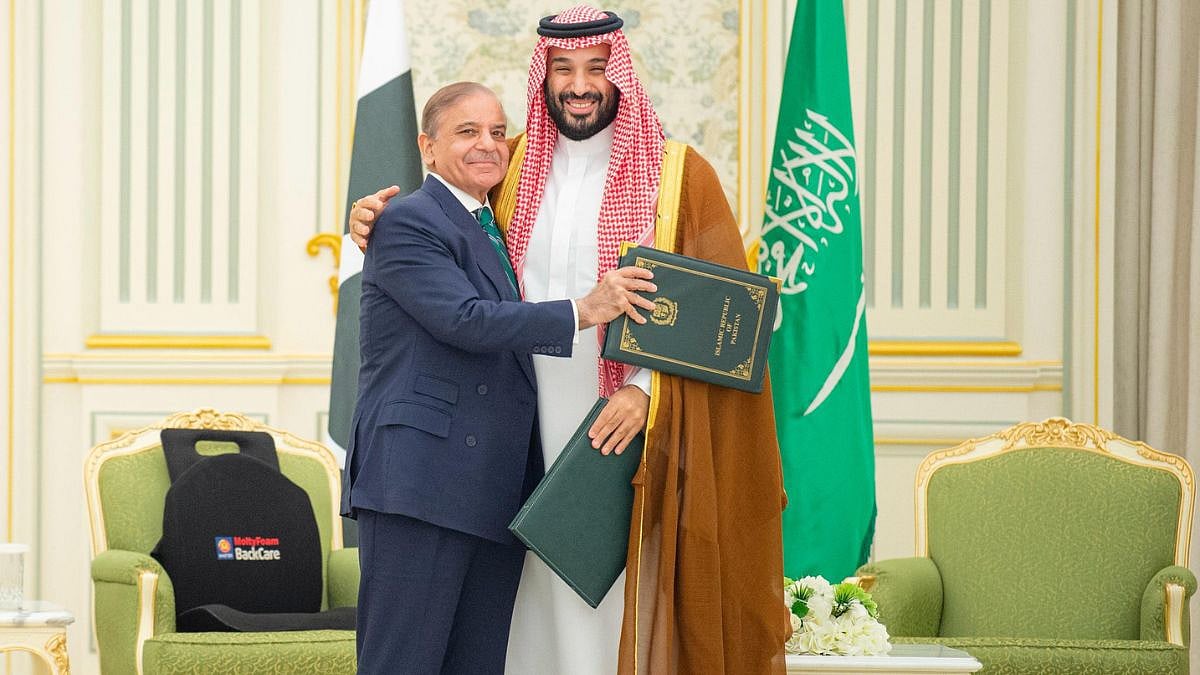The announcement of a mutual defence pact between Saudi Arabia and Pakistan could have consequences far beyond the perception of the House of Saud simply buying extra insurance against a possible Israeli attack.
The pact was revealed just days after Israel’s strike on Qatar—an event that underscored the fragility of American guarantees to its allies. This incident compelled Riyadh to expand an earlier agreement with Islamabad, which had allowed the use of Pakistani forces on Saudi soil.
By turning to Islamabad, and by extension Beijing, to underwrite its defence, Saudi Arabia raises some uncomfortable questions: If even Riyadh no longer trusts American protection, can anyone else?
For decades, Saudi Arabia has been viewed as the quintessential American client state—a kingdom where oil flowed in dollars, American arms ensured security, and Washington’s word carried the weight of strategic reassurance.
### A Sweeping Defence Agreement
The new pact between Saudi Arabia and Pakistan is sweeping in scope. A senior Saudi official told Al Jazeera that it is a “comprehensive defensive agreement that encompasses all military means.” This suggests that Saudi Arabia may now be covered under Pakistan’s nuclear arsenal—an arsenal that does not adhere to a “no first use” doctrine.
By extension, this development implies that West Asia now has two opposing nuclear-backed blocs: Israel and the United States on one side, and Pakistan and Saudi Arabia on the other.
### Broader Geopolitical Implications
The ripple effects of the pact extend far beyond the Middle East.
Pakistan sources the overwhelming majority of its weaponry from China. By binding its security to Pakistan’s defence umbrella, Saudi Arabia is effectively tethering itself to the Chinese military-industrial complex.
This carries significant ramifications. The China-Pakistan Economic Corridor (CPEC), Beijing’s flagship Belt and Road project, may now gain a de facto extension to the Persian Gulf. This extension provides China with an energy lifeline that bypasses the Strait of Malacca—a chokepoint long considered vulnerable.
### A Strategic Conundrum for India
India finds itself in a strategic bind. Its most vital energy supplier, Saudi Arabia, has entrusted its security to Pakistan—India’s arch-enemy.
It remains to be seen how New Delhi will reconcile this with the planned India-Middle East-Europe Economic Corridor, a signature initiative intended as a counterbalance to China’s Belt and Road project.
### The Future of Global Energy and Currency
Lastly, there is an important financial dimension. The Saudi-American bargain of the past half-century was built on oil priced in dollars and underwritten by U.S. military protection.
With Saudi Arabia outsourcing its protection to Islamabad, and indirectly to Beijing, the privileged role of the U.S. dollar in global energy markets looks increasingly precarious.
If the Suez Crisis of 1956 symbolized the eclipse of European empires, the Saudi-Pakistan pact may come to be remembered as the moment when America’s unipolar dominance of the world began to fray.
https://www.freepressjournal.in/analysis/saudi-pakistan-defence-pact-shifts-middle-east-security-ties-riyadh-to-beijing
